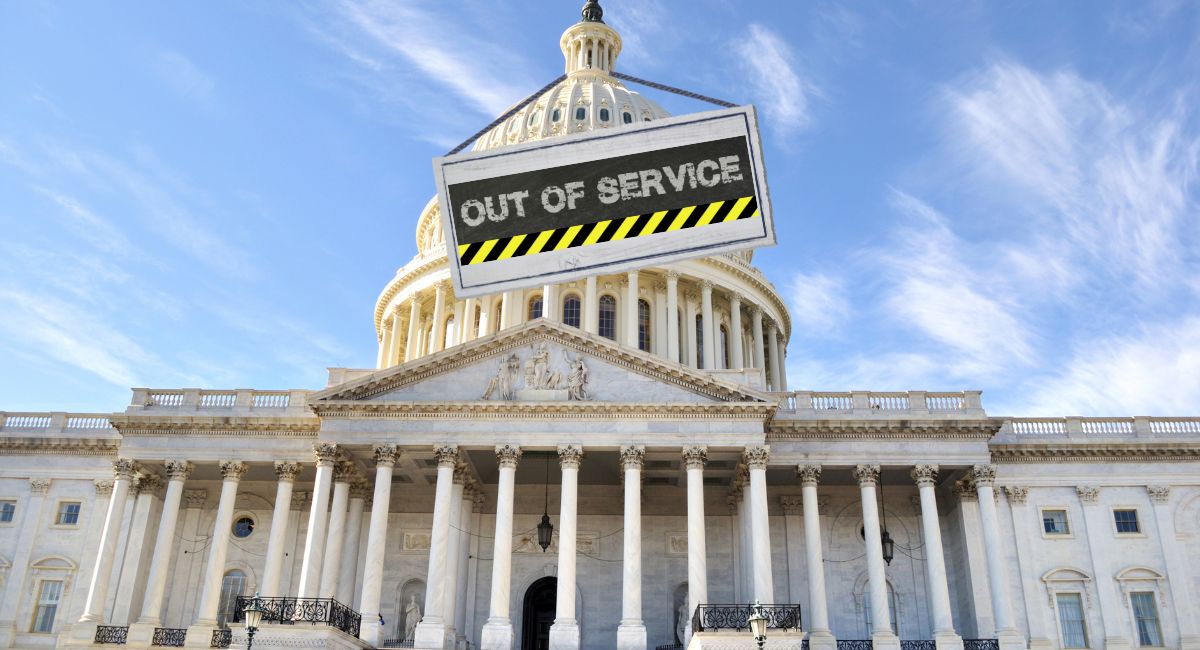Ethnic media join ACOM to warn communities about skyrocketing healthcare costs and vanishing premium tax credits.
Magazine, The Immigrant Experience
In an urgent ACOM briefing, experts and advocates reveal how the government shutdown and loss of ACA tax credits could push millions off health coverage. The voices arrived with urgency and conviction—streaming in from immigrant newsrooms, health policy circles, and grassroots movements—converging in an American Community Media (ACOM) virtual briefing that felt more like a community call to action. As the government shutdown stretched into its second week, ethnic media joined ACOM’s October 10 national news forum to spotlight an unfolding crisis: millions of Americans on Affordable Care Act (ACA) coverage face premium spikes that could force them off their health insurance altogether.
Moderated by Sunita Sarabji, ACOM’s Health Editor, the panel featured Anthony Wright of Families USA, Jennifer Sullivan of the Center for Budget and Policy Priorities, and Ashley Kirzinger from KFF. Their message was crisp and urgent: the expiration of enhanced ACA premium tax credits, combined with government inaction, is creating a perfect storm that will disproportionately harm low-income, rural, and immigrant communities.
Wright, a longtime healthcare advocate now leading Families USA, wasted no time outlining the stakes. “This isn’t just a policy debate,” he said. “It’s a double whammy—healthcare premiums are rising while the subsidies that help millions afford coverage are disappearing.” The Affordable Care Act marketplaces, created to help those without employer-sponsored insurance—freelancers, early retirees, gig workers, and small business owners—have seen an explosion in costs. Wright gave a stark example: in Maine, a 60-year-old earning $65,000 a year may see their monthly premium jump from $460 to over $1,400 if Congress fails to act.
The numbers are staggering. An estimated 22 to 24 million people will face rate increases. Of those, four million are expected to lose coverage altogether. And that figure may rise even higher if legislative delays stretch into the new year.
The expiration of enhanced premium tax credits—introduced during the pandemic to shield families from rising costs—means that people will once again face a steep cliff. Prior to these enhancements, families earning slightly above the eligibility line were forced to spend 20-30% of their income on coverage. The pandemic-era adjustments introduced a more gradual scale, ensuring that no one spent more than 8.5% of income. Losing this support reopens a trapdoor beneath working-class households.
For ethnic and immigrant communities, the impact is devastating. Araceli Martinez, a reporter from La Pinone, raised a pointed question: What will happen to Latinos in California, who make up more than half of the state’s ACA enrollees? Wright affirmed the fear: professions most reliant on marketplace plans—agriculture, construction, retail, and beauty services—are overwhelmingly staffed by Latino workers. Without these subsidies, many will simply fall through the cracks.
Jennifer Sullivan of the Center for Budget and Policy Priorities echoed the urgency, emphasizing that $0 premium plans, critical for very low-income people, are on the chopping block. “We hear policymakers talk about ‘skin in the game,’ but for many, even a $10 premium is a barrier,” she said. Citing Brookings data, Sullivan noted that 400,000 people would lose coverage if $0 premiums disappeared. “They’re not imaginary,” she added. “We’ve seen real reductions in uninsured rates among Black and Latino Americans because of these credits.”
Sullivan, who previously volunteered as an ACA navigator in Virginia’s immigrant communities, spoke from firsthand experience. She warned that fear and confusion are already chilling participation. “Even among those eligible, there’s rising concern that seeking coverage will expose them to immigration enforcement.”
That fear, combined with technical barriers and the sheer emotional weight of affording healthcare, makes clear messaging essential. Yet Ashley Kirzinger from KFF shared sobering findings: most people affected haven’t even heard about the expiring tax credits. Only 4 in 10 marketplace enrollees knew about the change. And when informed, 70% said they wouldn’t be able to afford coverage if premiums nearly doubled.
“Healthcare costs rank as the top financial worry across America,” Kirzinger said. “Higher than rent. Higher than food.” And support for extending tax credits is broad and bipartisan: 92% of Democrats, 82% of independents, and 59% of Republicans back renewal. Even 57% of self-identified MAGA supporters agree.
So why hasn’t Congress acted?
The briefing didn’t shy away from naming names. Wright pointed to the Trump administration’s opposition and the GOP-led House’s refusal to extend credits in the budget bill—choosing instead to prioritize corporate tax breaks. “It’s not about feasibility,” Wright said. “It’s about political will.”
California, often a leader in healthcare policy, offers some relief but not enough. The state provides hundreds of millions in additional aid, but that pales compared to the nearly $2 billion lost if federal subsidies expire. “It’s like plugging a leak with a teacup,” Wright remarked.
And rural communities face an even more existential threat. Without insured patients, rural hospitals could close. The administration’s solution? A $50 billion “transformation fund” is touted as a fix but is dwarfed by the nearly $990 billion in cuts to Medicaid proposed under HR1.
The takeaway? This isn’t a distant policy debate. It’s a crisis rooted in communities—where barbers, Uber drivers, home care workers, and farmhands are holding on to their healthcare by a thread.
And while the speakers held different roles—advocate, analyst, pollster—their chorus was clear: time is running out. November 1, the start of open enrollment, looms. Congress’s inaction could cascade into real-world harm: sticker shock, coverage gaps, and a dangerous ripple effect through the entire healthcare system.
For immigrant families and the ethnic media outlets that serve them, the message is simple: this fight is personal. The ACA was never just about insurance—it was about dignity, access, and the right to care.
And that right, today, hangs in the balance.
#HealthEquity #ACA2025 #ImmigrantHealth #EthnicMedia #GovernmentShutdown #HealthcareCrisis #ACOMBriefing #CommunityCoverage


